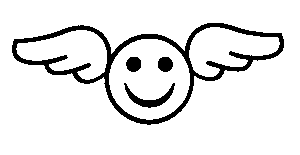Natty or not?
How the false binary of nature influences wellness trends
2023-05-26
Text: Lan McArdle
Like many others in lockdown, I became bored enough to start exercising. I did Adriene’s 30 day challenge and ordered a kettlebell set. I bought spirulina. I began to believe that I enjoy the taste of Huel. Later, I downloaded TikTok and impatiently ate up the self-improvement content the algorithm fed me, an unending flow of hacks for anything not-quite-right with my body. As the world around me appeared increasingly unstable, I convinced myself I had control, that I could get a handle on my body and my health through a series of home workouts and immune boosting smoothies. In reality, if the timing was right, I could catch the plague on my weekly shop. (When I did inevitably catch Covid, it was at the gym.)
After three posture-impairing years cultivating my FYP, the algorithm swerved from innocuous Gymtok videos down the unduly lubricated path of bodybuilding content. Soon, every 3rd video was an absurdly chiselled man asking another not just swole but quite literally swollen man, “Are you natty or not?” For bodybuilders, this speculation is by no means new, but its presence outside the confines of their subculture is a more recent development. These vox-pop clips, brimming with gargantuan pecs and preposterously low-cut stringer vests, fascinate me. The very idea of a binary distinction between natty and not both reveals and attempts to push back on the increasingly blurred boundaries between what we consider real and artificial, and why.
But what is natty, anyway? And is being natural better than being not? “There is no rigorous definition of any of these terms. The conceptualisation of nature as something that is good for human health is factually not true. Just because something is natural, does not mean it will be good for you,” medical and environmental anthropologist Dr Susannah Crockford explains. Despite or perhaps because we can’t objectively define what nature is, we deem things natty or not through a filter of cultural expectations and values. “Botulism toxin is a naturally occurring bacteria. They also use it for Botox. Now, most people will say Botox is not a natural thing to do to your face, but it’s from nature,” Dr Crockford says. Her ethnographic fieldwork among new-age spiritualists in Arizona revealed how an inflated yet simplistic view of nature obscured the complex realities of its impact on human health. “People would go to this natural spring in order to get pure, natural water [but] that spring turned out to have naturally occurring arsenic in it, which gives you cancer. They’re basically slowly poisoning themselves in order to get closer to nature.”
The message is clear: modern stresses require natural solutions, and we can sell them to you for £35.
While the search for good health through natural communion is, to be clear, as old as time itself, online wellness trends that harness the rhetoric of nature’s power — to heal, enhance, or purify — are reaching new heights. The parasite cleanse trend claims to rid your stomach of tiny worms that, some say, are responsible for anything from bloating to endometriosis. The ones that are cause for concern are most often contracted through the consumption of food and water contaminated with worm larva. But some wellness influencers and cleanse-enthusiasts proclaim that a diet augmented by ‘unnatural’ sugars and bereft of foods from the earth attracts parasites that you can subsequently expel through herbal supplements. If crushed up, parasite-destroying papaya seed tinctures don’t adequately imbue you with nature’s virtues, why not try sunning your perineum to maximise Vitamin D exposure by, I guess, shoving it up your ass? Proponents of sunning your holes sometimes advise you to do this alongside a carnivore diet, a so-called ‘primal’ wellness intervention that espouses a diet of meat, salt, and eggs. Yum! Some contemporary carnivores are drawn to this trend as a way to remedy the ills foisted upon them by a modern lifestyle in which masculinity is in steep and terrible decline — noted moron and famous carnivore diet adherent Jordan Peterson has made a career out of blaming the modern masculinity crisis on the continued existence of feminist ideology. The beefier beef-eaters among carnivores believe that modern food as well as modern moral frameworks are having a real impact on testosterone levels, and are packing as much raw meat as possible to avoid degenerating into “soy boy betas”.
Eating like our ancestors (whoever they are) won’t just improve your physical health, but the health of a world gone mad with too many genders and milk alternatives. And while these trends fall on the more extreme end of the spectrum, they run alongside an industry renaissance of alternative natural remedies. Traditional medicine is being rebranded as a simultaneously ancient and brand new solution for contemporary ailments. Ashwagandha, for instance, is a centuries old Ayurvedic remedy that has recently become TikTok’s adaptogen, substances claimed to destress, du jour. Alternative wellness brands are cashing in on the stress-relieving benefits of the supplement, an undoubtedly lucrative prospect in our age of cyclical crises of mental health and mental healthcare. Supplement brand The Herbtender claims to offer “A simple and natural way to help you adapt to the stresses of modern living”. The message is clear: modern stresses require natural solutions, and we can sell them to you for £35. “The narrative is, these things have always existed, they've been right under our nose, but we haven't noticed them until just now, and we're the one company that's figured it out.” Mary Cleary, Beauty and Grooming editor of Wallpaper magazine, says of the recent resurgence in supplements.
For the hyper-intervention side, there's this sense that nature is not good enough… that if we can perfect nature we can perfect ourselves.
Where some wellness trends attempt a full embodiment of nature, others see it as a kind of irritating problem to be solved. Interventions and products that utilise a tech aesthetic tend to be marketed as going beyond nature, both in form and function. Cryotherapy, infrared saunas, and and — the biohacker’s answer to perineum sunning — Rectal Ozone Therapy are all wellness interventions that legitimise themselves by their distance from the organic. They also, crucially, suggest that this distance is something an individual can or should want to achieve. “For the hyper-intervention side, there's this sense that nature is not good enough… that if we can perfect nature we can perfect ourselves,” says Dr Crockford.
This pursuit of self-optimisation often comes at a cost, not just financially, but physically. Cryotherapy practitioners often emphasise how exposure to extreme cold activates your fight or flight response to stimulate an array of biological benefits. IV vitamin drips claim to fix a laundry list of problems but as Cleary told me, not without the side effects experienced during treatment, including tingling legs, a crushing feeling in your chest, a sensation of urinating yourself, and an overwhelming sense of panic. “A lot of people say they have positive benefits from it, but I think it comes from this idea that if you push your body to the extreme and fight through something that feels wrong, it will give you better results,” Cleary explains. And what are the results? “All these treatments ultimately tell you that you'll look better and feel better. And by better, they mean younger." The natural, inevitable process of ageing has always been something that the beauty industry has tried to mask, but there are some who see no reason to stop at an aesthetic level. Comforted by the knowledge that they can safely outlive Earthly climate collapse on a terraformed Mars, tech magnates are now investing billions in age-reversal innovations. If nothing is certain except death and taxes, why accept the former when you’ve managed to evade the latter?
Why, indeed. Why rejuvenate your cells or sun your holes or freeze yourself into a trauma response or take supplements that may or may not do anything for your body? “Recent research [suggests] that perfectionism is rising over time,” says Marianne Etherson, a researcher at the University of Glasgow who specialises in perfectionism and mental health. “With social media, people high in perfectionism are particularly vulnerable to negative social comparisons and engaging in the consumption of beauty products and trends… These behaviours are definitely a coping mechanism to strive to feel enough.”
No matter if you aren’t sick now — there’s always a risk that you haven’t optimised yourself enough.
As we continue to look online for answers to personal and social insecurities, the quick fixes touted by influencers can be extremely compelling. While scrolling on your FYP is an ultimately solitary experience, social media can provide what seems like (and sometimes truly is) a space of belonging and community. Knowing you aren’t alone as you navigate emotional or physical health problems is a welcome source of sympathy, and when this sympathy is handily bundled with solutions, partaking in wellness trends becomes aspirational. The power of persuasion — in both the products being promoted and their prolocutors–is particularly potent for someone amid a cycle of seeking human perfectibility. “A perfectionist is never really satisfied. When they achieve something, it might be a very fleeting sense of satisfaction, or they don't feel the satisfaction that they were expecting. So they'll go through this cycle of trying to achieve something else, but they'll never quite feel enough, even when they do achieve it. And when they don't achieve it, they'll feel things like shame and guilt,” says Etherson.
The beauty and wellness industries capitalise on this by packaging interventions (be they natty or not) in a self-empowerment rhetoric, a boom of which we saw during the heady self-care highs of the onset of Covid. “It's tied to this notion that you're not being vain or self-indulgent, you're improving your life to be a better person. It's not an interior thing that you're doing for your own selfish desires, it's to make yourself a better human being in the world, which impacts everyone else,” Cleary says about self-care and self-empowerment narratives. And while pursuing practices that increase a sense of confidence and autonomy is a positive aspiration on its face, these industries would have you believe that this is solely achievable through consumption. “It's taking agency for yourself, but by purchasing the right services. So how much is it actually taking agency, and how much is it subcontracting your personal development?” asks Dr Crockford. The pretence of an assumed control of our bodies, however, is not the same as being healthy–no matter how many supplements we stack. Somewhere along the way, we lost sight of the definition that separates wellness from health, and in the conflation of these two concepts the origins of our ailments became obscured by questionable, often ludicrous, panaceas.
In countries without socialised medicine, or where socialised medicine is being brought to its knees by policies of austerity, commodified wellness actually seems relatively cheap.
Yes, the practices of modern carnivores and proto-cyborgs alike are dubious at best, but their motives? Well, it’s hard to argue that contemporary life is not making us sick. But a narrative that pushes an individualistic quest for self-optimisation is a convenient diversion from addressing the structural problems at the root of our anxieties. The wellness industry depends on what Colleen Derkatch calls ‘incipient illness’, in which consumers are invited into a paranoid state of self-surveillance, constantly mitigating the potential of future ill-health. No matter if you aren’t sick now–there’s always a risk that you haven’t optimised yourself enough. Frankly, if an industry depends on the consumption of solutions, you should be doubtful that it is particularly invested in eliminating the problems that their products claim to solve. But no amount of exposure to infrared saunas or combinations of personalised supplements can mitigate the harm caused by inaccessible healthcare and increasing social inequality. Given their scale, changing the conditions that truly influence our quality of life can seem impossible, thank god Ashwagandha supplements are £5 off on the TikTok shop! In countries without socialised medicine, or where socialised medicine is being brought to its knees by policies of austerity, commodified wellness actually seems relatively cheap, and when you feel powerless over the systems that influence your social conditions, these conditions can start to seem inevitable.
This has long been used to foster inaction against destructive institutions, the fossil fuel industry, for instance, famously pours money into campaigns that encourage climate doomism. It’s no wonder these divergent responses have emerged, one promising to transcend nature's limitations, another promising to restore a natural condition from ‘better’ times. Reject modernity, embrace tradition. Or the other way round. But the simple fact of the persistence of destruction or inequality doesn’t make them a natural part of our lives. “Nature”–as Donna Haraway writes in Simians, Cyborgs and Women–“is constructed, constituted historically, not discovered naked in a fossil bed or tropical forest.”
The duality of nature's ability to be manipulated while still manipulating us in ways that we cannot fully understand is not, however, a binary. In making it so, we have lost sight of which uncertainties we can and should change, and which we must learn to live with. Turning towards or against nature to heal fractures made at the hands of global capitalism ignores that the most meaningful wellbeing intervention would be to implement material systemic reform through the dismantling of contemporary capitalism. Meanwhile, we could benefit from doing away with the natty or not binary entirely and embracing our physical and ecological mutabilities. As it stands, it feels as though we are losing sight of the difference between illness and profound change, and all the while our dogged obsession with staying alive is preventing us from simply living. As Dr Crockford says, “Accepting your mortality and that you will get sick and die is terrifying. But that's life, you know. To live is to die.”
For more content like this, explore the rest of the Digiverse, or connect with us on TikTok or Instagram. If you’re a brand or business and want to inspire your audience in innovative ways, reach out to our strategic & creative lab effy@thedigitalfairy.co.uk.

Welcome to the Digiverse, your portal to internet enlightenment.
From IRL to URL, digest the best of algorithm-driven culture – news, trends and insights – powered by The Digital Fairy.










